Israel 'Accelerates' Preparations For Action Against Iran

The chief of staff of the Israeli Defense Forces says the air force has accelerated preparation for action against the Islamic Republic.

The chief of staff of the Israeli Defense Forces says the air force has accelerated preparation for action against the Islamic Republic.
Speaking at a ceremony to assign a new air force commander on Monday, Lieutenant General Aviv Kochavi said that the missions are expanding in different fields including “the readiness for action in Iran, which is currently in an accelerated process of preparation”.
He added that Israel is also upgrading its wide range of aircraft and airborne sensors and increasing and perfecting the scope of aerial attacks of all kinds.
The strikes by the air force have "decisive impact" in preventing Iranian forces from entrenching themselves in Syria, keeping Hezbollah out of the southern Golan Heights, and preventing Israel's enemies from "gaining advanced weapons systems", he said.
Expressing concerns over increased violence during the Islamic fasting month of Ramadan, he said security forces have foiled at least 10 attempted attacks in the last two weeks.
A total of 11 people were killed in a one-week period in a succession of fatal attacks -- a car-ramming and stabbing spree in Beersheba, mass shootings in Bnei Brak and Hadera, and a stabbing in Gush Etzion.
The attacks were praised by Iran-backed Lebanese Hezbollah and media affiliated with Iran Revolutionary Guards.
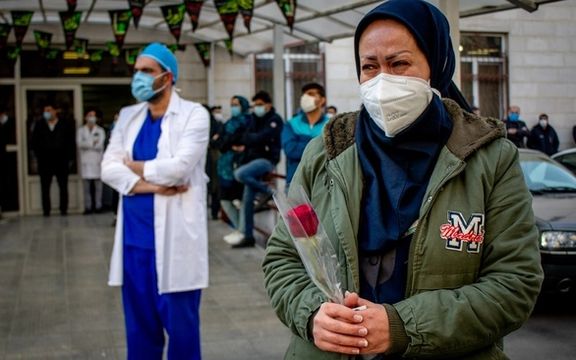
Iran's Medical Council says about 4,000 doctors have applied for Certificates of Good Standing in the past 12 months with the intent to leave the country.
Council spokesman Reza Laripour said on Monday that the annual number of such applications was less than 600 between 2013 and 2015.
Rejecting some reports saying only young doctors were applying for a certificate, Laripour said that the council receives applications from doctors from different age groups.
General economic conditions have deteriorated in the country since 2018, when the United States unilaterally withdrew from the 2015 nuclear deal between Tehran and world powers and reimposed crippling sanctions.
The Medical Council of Iran is a non-governmental organization that is responsible for licensing doctors in Iran. It can deliver Certificates of Good Standing confirming that the applicant is entitled to practice medicine in the country.
There are around 90,000 doctors in Iran, split evenly between general practitioners and specialists.
Last month, the governor-general of Fars Province, who is himself a medical doctor and the longest serving dean of the medical school in Shiraz, created an uproar in Iran when he told doctors they were not indispensable and that they could leave the country if they wish.
"Doctors who threaten to leave Iran are free to go and I will see them off," Mohammad Hadi Imanieh was quoted as saying, adding that he would be willing to pay the travel cost of medical doctors who wish to leave Iran.
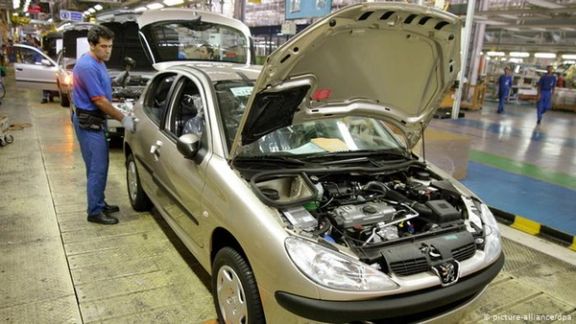
Industry critics say a “mafia-like” influential group is behind a ban on car imports to eliminate competition to Iran's auto industry where their interests lie.
In an interview with Bazaar website on Monday, Mehdi Dadar, secretary of car importers' association, said buyers in the Iranian market are critical of a ban on importing cars behind which, he alleged, lies a 'mafia group', as authorities do nothing to correct the situation.
Dadar accused policymakers of indirectly supporting Chinese auto parts manufacturers and turning the industry into "assemblers of Chinese parts". He alleged that powerful importers of car parts are behind government opposition to importing cars.
Iran's quasi-government automotive industry, the county’s largest after oil and gas, employs 700,000 workers. Iran annually makes nearly 1.5 million vehicles. The sector is in debt for billions of dollars and is a large burden for the government and its banks.
The issue of the ban on car imports introduced in 2018 became very controversial last week when lawmakers realized that their approval for the government to provide foreign currency to importers for 70,000 cars had been eliminated from the budget from the budget.
During their debate over the budget earlier, lawmakers had agreed to the government's plan to allow importing 70,000 cars in the next 12 months to augment tax revenues. The budget bill, however, set a condition that the cost of the imported cars would not exceed 25,000 per unit.
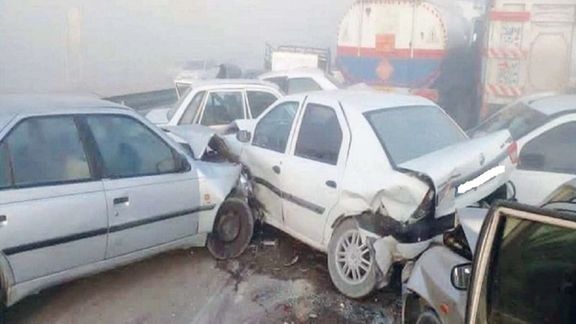
According to the official news agency IRNA, the omission was made with the knowledge of the parliament's presidium and Speaker Mohammad-Bagher Ghalibaf because they knew the constitutional watchdog, the Expediency Council would oppose it.
Critics, however, say that the Expediency Council and another watchdog, the Guardian Council, should not have intervened in a practical matter, and allege outside influences played a role in the interference.
Minister of industries, mines, and trade, Reza Fatemi-Amin, on March 13 claimed that the ban on car imports was a consequence of shortage of foreign currency rather than a measure to support domestic producers and the ban would be lifted soon.
Iran Khodro and Saipa, the two largest automakers, have a monopoly in the Iranian market.
Critics say by protecting automakers' interests in many ways, including by eliminating foreign competitors, successive Iranian administrations have become complicit in putting innocent people's lives in danger.
Road Police officials have repeatedly warned about inadequate safety standards of domestic cars. Speaking to the Iranian Students News Agency (ISNA) in October, Deputy Chief of Iran's traffic police, Brigadier-General Taymour Hosseini said road accidents were occurring due to inadequate safety standards as Iranian companies struggled to keep up with cost and parts sourcing. "Big companies in the world are working on intelligent cars but we have dropped our expectations so much that we are happy with having anti-lock braking systems,” he said.
In an interview on March 24 with Hamshahri Online, chief of Iran's road and traffic police, Brigadier General Kamal Hadianfar, criticized manufacturers for importing car parts from China, saying there is no effective quality control in the industry.
After two massive vehicle collisions involving tens of cars in southwestern Iran in January during which the cars' airbags failed to open, Hadianfar called domestically produced cars "carriages of death".
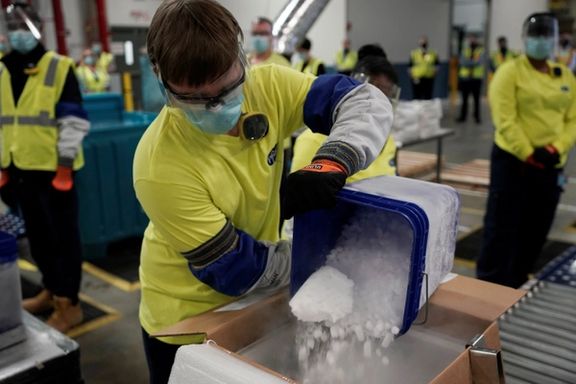
While Iran’s national carrier, Iran Air says Iraq does not allow entry to visitors who have received Iranian-made Covid-19 vaccines, the Interior Ministry says it is not aware of such a restriction.
In response to Iran Air's announcement, Hossein Ghasemi, the Interior Ministry's director of border affairs said the ministry had “not yet received official letters from the [Iranian] Ministry of Foreign Affairs regarding the Iraqi-approved vaccines."
Iraq has vaccinated 18 percent of its population, short of a 40 percent target set last year by the World Health Organization for January 2022, but has reported only 25,157 deaths. Iran has vaccinated 69 percent and has reported 140,315 deaths.
Iran has approved at least six homegrown vaccines for production, although some have not completed trials. Most of the 147 million doses administered in Iran are Sinopharm, recognized by the World Health Organization in May 2021.
In January 20121, Iran’s Supreme Leader Ali Khamenei banned the purchase of American and British vaccines, and the state began pushing for homegrown variants. Most vaccine projects seemed to be the result of competing economic interests of influential groups.
In September 2021, more controversy ensued when a former member of parliament alleged that Barakat, the most well-connected vaccine developer received one billion dollars from the state in advance and delivered only a fraction of the quantity promised.
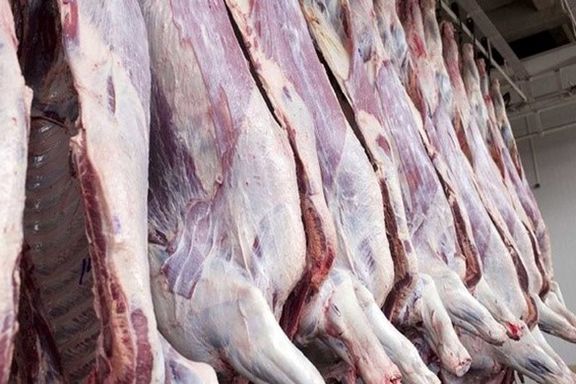
The chairman of the country's livestock supply council, Mansour Pourian, told ILNA Monday that a rise in red meat prices had accelerated despite an oversupply in the market.
Consumption of meat has decreased by as much as 50 percent in the past year due to higher prices.
Pourian said that red meat production was higher than consumption, with a surplus of 4 million sheep. He attributed this to stagflation and predicted that drought and water shortages in coming months would raise production costs. But he called on the government to allow the export of live cattle, which was banned last year as means to regulate the market and hold down domestic prices.
Inflation in Iran has been hovering around 40 percent after the United States imposed sanctions in 2018. But food prices have been rising at alarming levels, with government figures showing above 60-percent inflation at retail level in 2021, compared with 2020.
Aftab News website in Tehran reported on Sunday that one kilo of average fresh lamb meat has reached $8, which is not so high in comparison with Western countries, but is unaffordable for many Iranians who make around $200 a month.
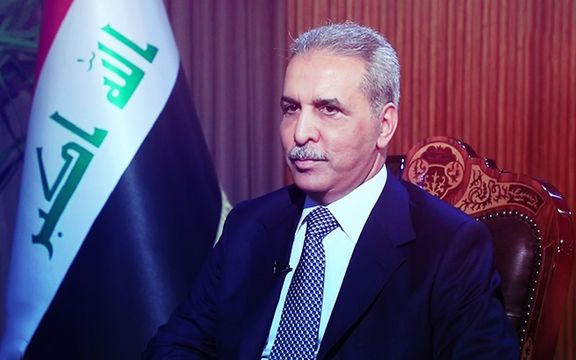
The head of Iraq’s Supreme Judicial Council says the judiciary is under intense pressure and meddling by factions amid a political deadlock in the country.
Fa'iq Zaydan, who is also the head of the Federal Supreme Court of Iraq said on Sunday that the judiciary is an independent body and does not allow such interventions.
While six months have passed since the parliamentary elections Iraqi factions have failed to form a new government. Zaydan ruled out the formation of an emergency government due to complex constitutional procedures, warning of negative repercussions of such an option.
He added that the judiciary has the power to dissolve the parliament according to the constitution, but it would lead to a worse situation than the current one, suggesting that a political consensus is the best way to solve the crisis.
The movement of Moqtada Sadr – who is opposes Iran’s influence in Iraq -- won the biggest winner in the October 2021 parliamentary elections gaining 73 out of 329 seats, but pro-Iran groups claim they can muster the backing of 88 lawmakers to make a bigger coalition.
The parliament's first tasks is electing the country's president, who will then name a prime minister tasked with forming a new government.
Tehran has been accused of directly interfering in Iraq’s internal affairs, including in elections, since Saddam Hussain’s regime was toppled in the 2003 US invasion. Iran’s interference in Iraqi politics led to large protests in 2019 that lasted for months.